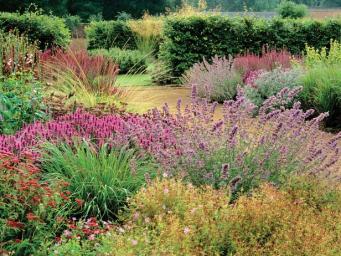See Our Progress
My school appeared on the news last week because we had made an important change in our community. Our 8th grade class had planted a large garden in what was
once only a vacant lot. It was a lot of work, it took much cooperation and many weeks, but it was all worth it. I got blisters from digging, and we all got insect bites, too.
I learned a lot about gardening and collaboration, and then I learned about the media. This experience taught me a great deal about television news. First, our teacher telephoned the TV station and informed them of what we had accomplished. She spoke with the producer—the person who assigns reporters to cover interesting stories.
I never knew how people get on the news, I didn’t know you could call and tell the TV station about your school. The producer checked with the directors, but they claimed there were plenty of stories similar to ours. They wanted to know what was special about our particular garden, since many schools plant them.
The teacher explained that, after going on the Internet to learn about the prairie, we had made a prairie garden. We had gone to a prairie and gotten seeds from the plants, and then we planted them. We did not water the garden, but we did weed it. We decided to let nature water it with rain, since that was how prairies grew in the past. We sent a picture of the garden to the news station. In the picture, the grass was so high that it stood taller than the fourth grade students.
The director thought our story would be interesting because it was not just a garden, but a history lesson. Actually, it was also a science lesson. As a result, they sent a reporter to our school, and that reporter also brought a cameraman. The security guard helped them carry the equipment into the building.
They interviewed the principal and asked detailed questions about the garden—whose idea was it, what did it cost, how big was it, and how big did we plan it would be—would we be expanding it? After that, they interviewed us, and we explained to them what we had learned through this project. They even interviewed a person on the street and asked what he thought about our garden.
They were at our school for two hours, and it was exciting, so we were really ecstatic. That night, we watched the news, and there we were. The news anchor told our story. It was only two minutes long, but it was us. We were famous. All that work, all those blisters, it was worth it, we knew that when we saw the garden every day, but now we knew that the whole city thought so, too.
